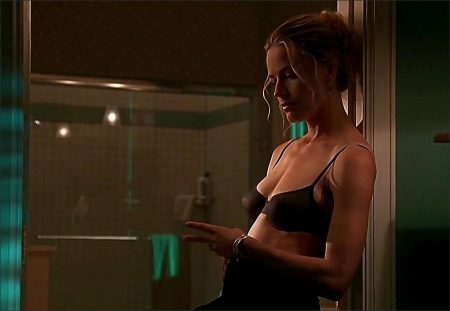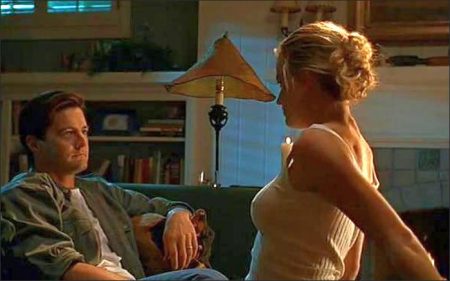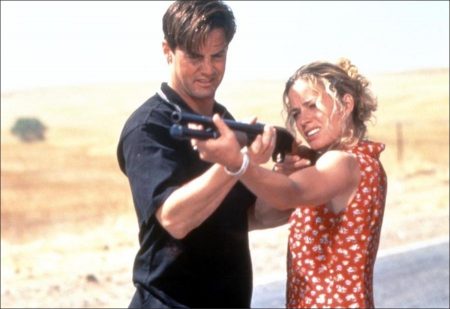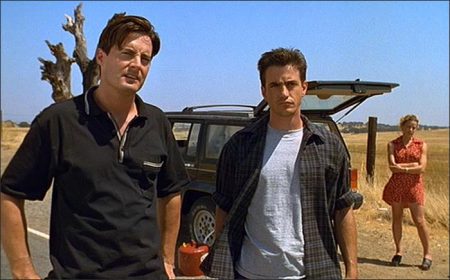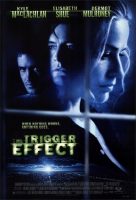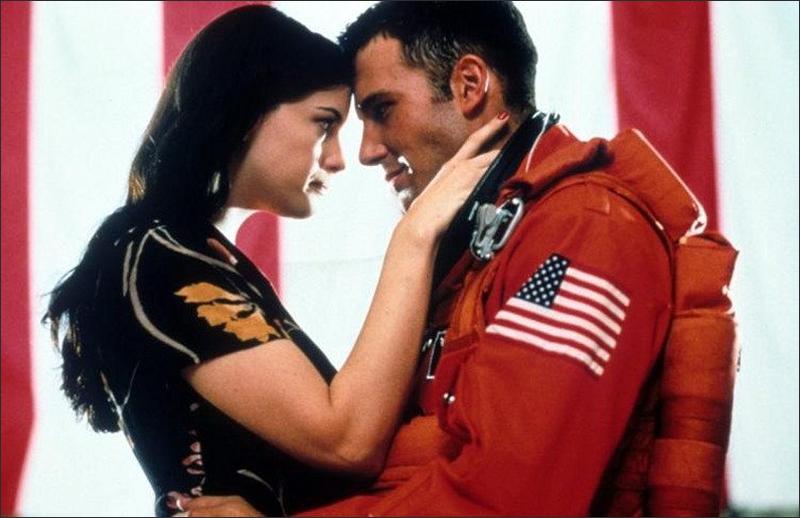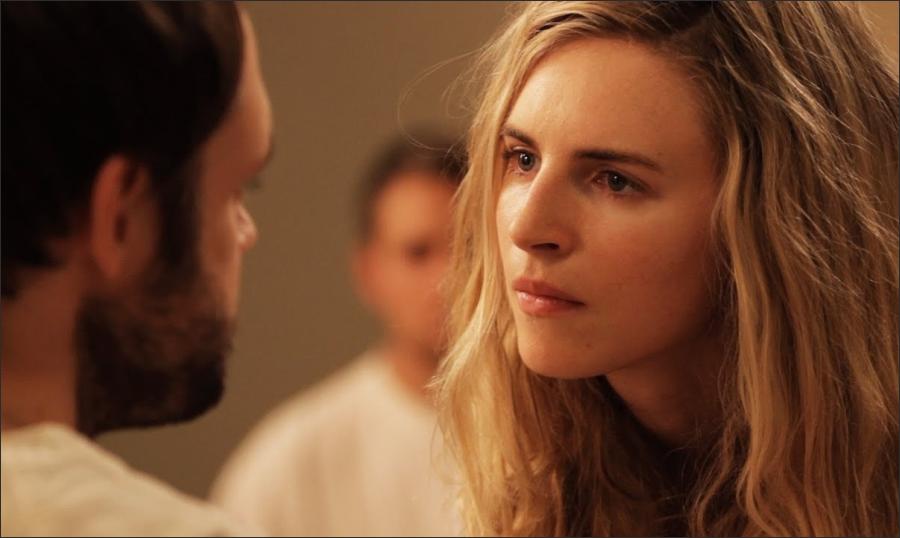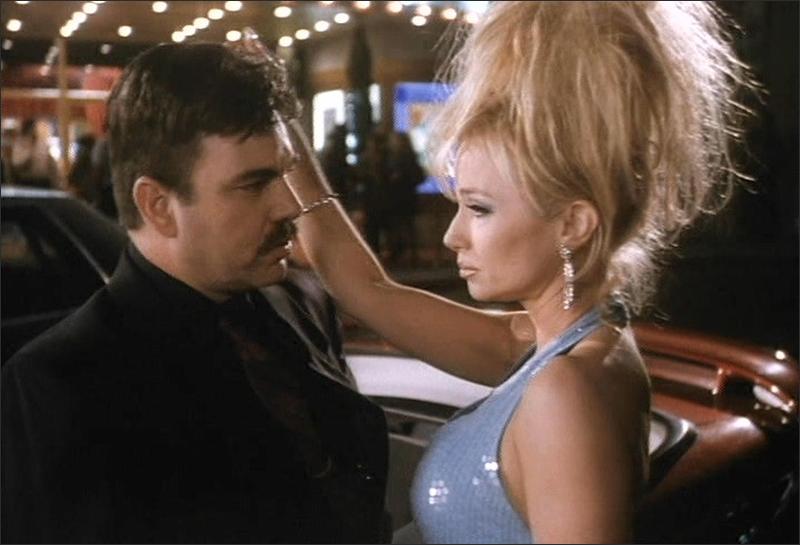Taglines: When nothing works, anything goes.
The Trigger Effect movie storyline. How tenuous is man’s hold on civilization when survival becomes an issue? When the lights go out and stay out for several days, suburbanites Matthew and Annie learn the hard way that man is “by nature” a predatory creature. Matthew’s long-time friend, Joe, happens by on the second day and a rivalry between the two friends simmers as Annie cares for her sick baby. When rumors of looting spread through the neighborhood, the two men buy a shotgun for protection but Annie throws it in the pool.
Later, that same night, Joe hears a prowler downstairs and awakens Matthew. They chase the stranger from the house and out into the street where a neighbor shoots him to death. No longer safe in their own home, they decide to drive to Annie’s parents some 500 miles away. Before they reach their destination, more trouble comes their way when they stop to siphon gas from an abandoned car and discover the driver in the back seat… Is this what is meant by “man’s inhumanity to man?”
The Trigger Effect is a 1996 American thriller film written and directed by David Koepp and starring Kyle MacLachlan, Elisabeth Shue and Dermot Mulroney. The film follows the downward spiral of society during a widespread and lengthy power outage in Southern California. The Trigger Effect was released on August 30, 1996. It grossed $1.9 million on its opening weekend and opened in 12th place. It went on to earn $3.6 million in the US. It was released on VHS in January 1997.
Film Review for The Trigger Effect
In the startlingly good first moments of his debut feature, ”The Trigger Effect,” the writer-director David Koepp offers razor-sharp images of modern malaise. His film captures the urban jitters so diabolically that it even locates them in a movie theater, so that Mr. Koepp’s own audiences are sure to sit up and take notice.
Characters ricochet irritably off one another. (”Would you stop touching me?” somebody complains). A woman cuts rudely to the front of the popcorn line. Two men talk noisily during the movie, prompting Matt (Kyle MacLachlan) to feel vaguely ashamed when he can’t tell them to be quiet. The movie being shown, heard but not seen, has a soundtrack of gunshots and screeching tires that the audience greets with jaded laughter.
Later, Matt and his wife, Annie (Elisabeth Shue), leave the theater, feeling a little edgy and disoriented in the underground garage. They drive home and deactivate the burglar alarm in their comfortable-looking house, which is torn up by renovations. Scaffolding blocks the kitchen window. In a bedroom, the baby has an ear infection and is screaming. A phone call to the pediatrician is no help.
Exhausted, Ms. Shue’s Annie slouches languidly in a doorway. (Once again, the star of ”Leaving Las Vegas” makes her sultry body language speak volumes.) ”I don’t think you love me anymore,” her husband says casually. Annie issues a nondenial denial about that. Matt moves on and starts toying with the television’s remote control.
What would it take to unravel this life? Just an ominous freak occurrence a la ”Twilight Zone,” which provides ”The Trigger Effect” with a model for heavily metaphorical ways to manipulate the audience’s fears and preconceptions. Mr. Koepp’s film brings to mind ”The Monsters Are Due on Maple Street,” a classic cold war cautionary tale from ”The Twilight Zone,” which starred his uncle, Claude Akins. Then as now, there’s a story to be told about how easily civilized manners can crumble in the face of panic.
Mr. Koepp, whose writing credits include Brian De Palma’s ”Mission: Impossible” and ”Carlito’s Way” and Steven Spielberg’s ”Jurassic Park” along with more idiosyncratic films like ”Bad Influence” and ”Apartment Zero,” needs only a citywide power failure to send his characters reeling. (His nominal inspiration here is ”Connections,” a BBC documentary from the late 1970’s.)
Having depicted the crisis eerily with a nighttime vista that is pure Spielberg, he begins taking toll of the damage. No cash, no radio, no telephones, no computers; no way to get a prescription for that screaming baby. People like Matt and Annie — and their handsome friend Joe (Dermot Mulroney), who spends the night with them at Annie’s invitation — must try the brand-new experience of living by their wits.
As befits his on-the-job training with Hollywood’s most commercially adept directors (he also wrote ”Death Becomes Her” for Robert Zemeckis and ”The Paper” for Ron Howard), Mr. Koepp knows more about setting up this gripping, high-concept crisis than about where it leads. Directed with a spare look and exceptional crispness and precision, ”The Trigger Effect” ultimately falls back on the familiar, especially in its banal ideas of how Matt and Annie are changed by their experience. But during the three-day emergency that it describes, this cleverly made film sustains a spooky intensity and an insinuating, utterly confident style.
Among the twists and turns that Mr. Koepp creates for his characters are crises that show Matt and Annie how much each of them secretly enjoys living dangerously. She flirts outrageously with Joe while Matt seethes in the next room. (This doesn’t come to much, but Ms. Shue and Mr. Mulroney give it some heat.) Matt himself is excited by the risk of stealing medicine for the baby. Matt and Joe visit a gun shop, where business is alarmingly brisk. None of this might amount to much without such taut direction and just the right cast. Ms. Shue and Mr. Mulroney share a smoldering intensity, while Mr. Mac-Lachlan clings to propriety in ways that seem ready to turn dangerous at any moment.
Among the few other figures in this quiet, controlled film are a volatile bully, played to frightening effect by Michael Rooker, and a man named Raymond (Richard T. Jones), whose path happens to cross Matt’s more than once. Raymond is black, and his race is deliberately used in ways that heighten the film’s tensions.
The potential for confrontation reaches its peak as the characters move to a scenic prairie dominated by a nuclear power plant, a crow and a dead tree. Mr. Koepp, with characteristic acuity, emphasizes the danger of the situation with a shot of the two-lane road cutting through this landscape. Every car is headed in the same direction: out of town.
”The Trigger Effect” never bothers to explain exactly what everyone is fleeing, which seems an emptier affectation now than it did in Rod Serling’s day. But its enveloping style (it was shot by Newton Thomas Sigel with the same cool elegance he gave ”The Usual Suspects”) is haunting in its own powerful way. So is its sense of overriding strangeness.
”This is not my beautiful wife,” Joe says mockingly about Annie, quoting Talking Heads’ anthem of middle-class alienation. ”Do I know you?” this film’s characters ask in various ways. In the end, Mr. Koepp strains for an optimistic answer. But the one he offers most convincingly and memorably is no.
The Trigger Effect (1996)
Directed by: David Koepp
Starring: Kyle MacLachlan, Elisabeth Shue, Dermot Mulroney, Richard T. Jones, Bill Smitrovich, Michael Rooker, Tyra Kristiansen, Rick Worthy, Monica Torres
Screenplay by: David Koepp
Production Design by:
Cinematography by: Newton Thomas Sigel
Film Editing by: Jill Savitt
Costume Design by: Dana Allyson
Set Decoration by: Larry Dias
Art Direction by: Jeff Knipp
Music by: James Newton Howard
MPAA Rating: R for language and some violence.
Distributed by: Gramercy Pictures, Universal Pictures
Release Date: August 30, 1996
Hits: 293
